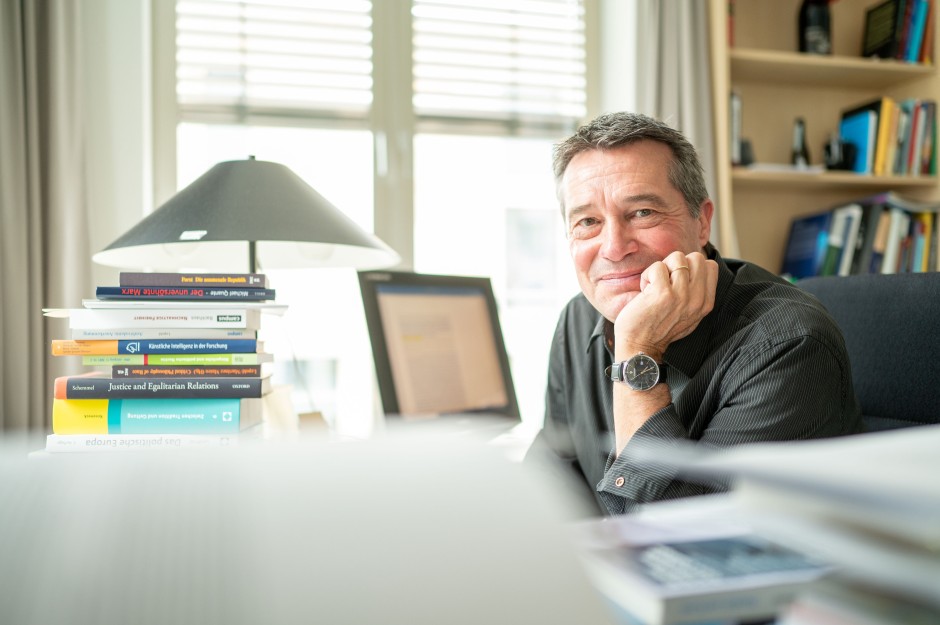
Rainer Forst is Professor of Philosophy and Political Theory at the Goethe University in Frankfurt.
Image: Wonge Bergman
As the first in the family to go to high school, today an interpreter of the world: philosophers can think about anything, says Rainer Forst.
Ialways thinking, always thinking, this is how Jürgen Habermas once remembered his teacher Theodor W. Adorno. Something similar can also be assumed for Rainer Forst. In any case, the evidence is overwhelming. The enormous stacks of books and manuscripts from the political philosophy area in his office, the list of his awards and assignments. An incomplete list: The professor of political theory and philosophy is co-founder and co-director of the Research Center Normative Orders at Goethe University. He is director of the Justitia Center for Advanced Studies and co-spokesperson of a research initiative funded by the state of Hesse that deals with trust issues. He is involved in the National Institute for Research on Social Cohesion. The fifty-eight year old is the recipient of the Gottfried Wilhelm Leibniz Prize and a member of various academies. One could feel a little of what is called fear of the unknown in psychology when faced with such a proven clever mind. But you don’t need it.
Forst has the remarkable ability to make the sometimes unwieldy terrain of political philosophy not only accessible but also exciting for an audience outside of the scientific community. How this works – he also thinks about it. Likewise about freedom and justice, about tolerance and participation, about rights and principles. And occasionally also about how the next home game of Eintracht Frankfurt fits into the usually overcrowded schedule.









